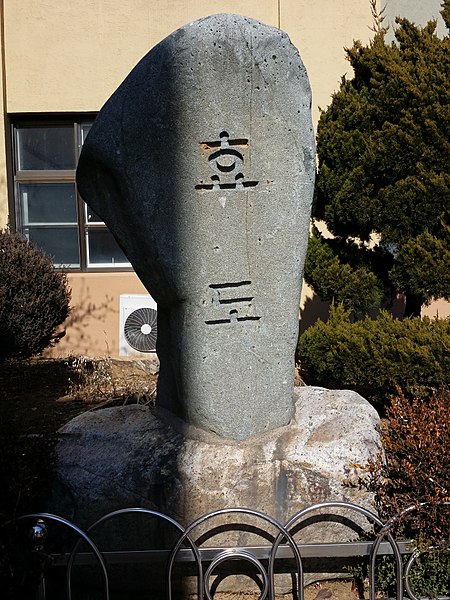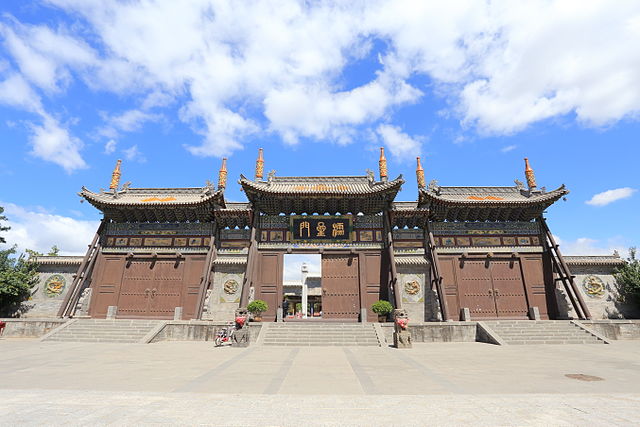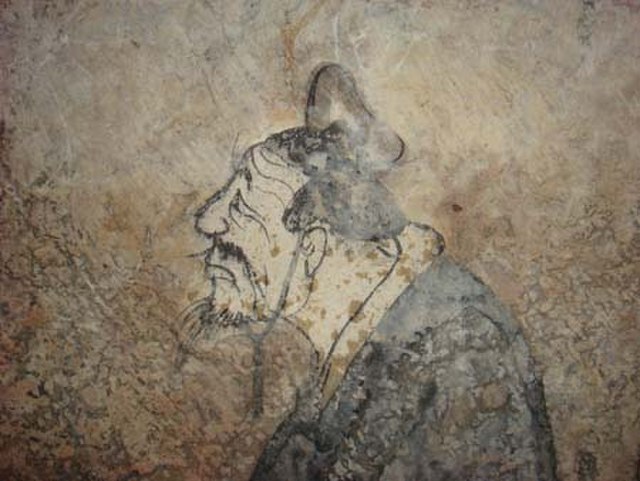Filial piety is the virtue of exhibiting love and respect for one's parents, elders, and ancestors, particularly within the context of Confucian, Chinese Buddhist, and Daoist ethics. The Confucian Classic of Filial Piety, thought to be written around the late Warring States-Qin-Han period, has historically been the authoritative source on the Confucian tenet of filial piety. The book—a purported dialogue between Confucius and his student Zengzi—is about how to set up a good society using the principle of filial piety. Filial piety is central to Confucian role ethics.
Scene from Illustrations of the Classic of Filial Piety (detail), depicting a son kneeling before his parents.
Illustrations of the Ladies' Classic of Filial Piety (detail), Song dynasty, depicting the section "Serving One's Parents-in-Law".
Koteiken, one of The Twenty-four Cases of Filial Piety, depicted emptying a chamber pot for his mother. Utagawa Kuniyoshi, 1848.
A memorial stone at a Korean elementary school, with the inscription "filial piety".
Confucianism, also known as Ruism or Ru classicism, is a system of thought and behavior originating in ancient China, and is variously described as a tradition, philosophy, religion, theory of government, or way of life. Confucianism developed from teachings of the Chinese philosopher Confucius (551–479 BCE), during a time that was later referred to as the Hundred Schools of Thought era. Confucius considered himself a transmitter of cultural values inherited from the Xia (c. 2070–1600 BCE), Shang (c. 1600–1046 BCE) and Western Zhou dynasties (c. 1046–771 BCE). Confucianism was suppressed during the Legalist and autocratic Qin dynasty (221–206 BCE), but survived. During the Han dynasty, Confucian approaches edged out the "proto-Taoist" Huang–Lao as the official ideology, while the emperors mixed both with the realist techniques of Legalism.

Temple of Confucius of Jiangyin, Wuxi, Jiangsu. This is a wenmiao (文庙), that is to say a temple where Confucius is worshipped as Wendi, "God of Culture" (文帝).
Gates of the wenmiao of Datong, Shanxi
Confucius in a fresco from a Western Han tomb in Dongping, Shandong
Painting of Confucius donning traditional robes, by Wu Daozi, 8th century








